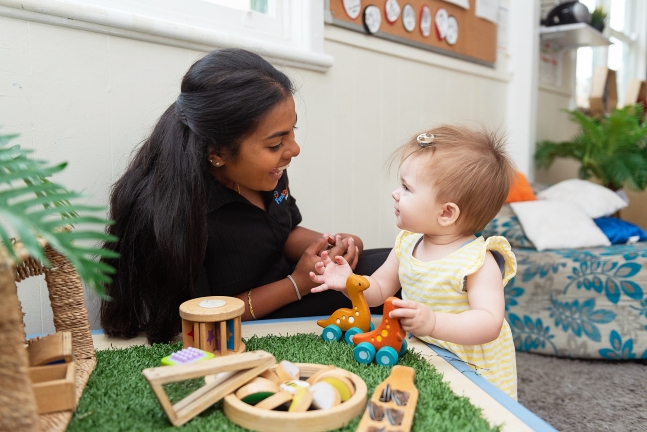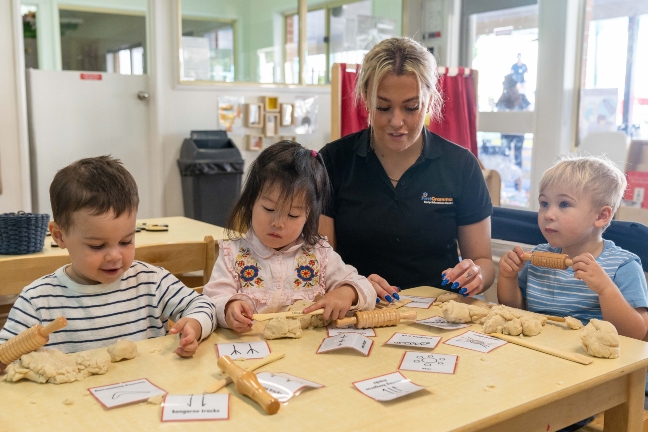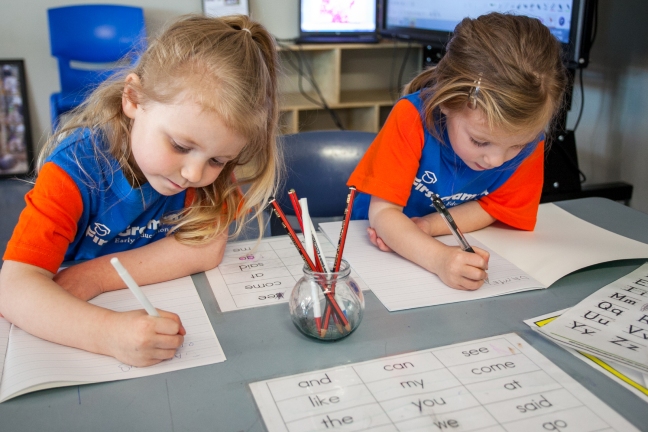Childcare, kindergarten and preschool
Why choose us?
First Grammar is proud to be part of the G8 Education group, which offers childcare services, kindergarten, and preschool programs for babies to 5 years, to over 45,000 children in over 400 local centres across Australia.
At every First Grammar centre, you’ll find a nurturing team of experienced educators and bachelor-qualified teachers who deliver innovative learning programs tailored to your child’s individual learning and development. Our team design play-based experiences to build your child’s confidence so they become lifelong learners.
By focusing on the notions of belonging, being and becoming as part of the Early Years Learning Framework, we’re encouraging your child to:
- Build a stronger sense of identity
- Strengthen their connection and contribution to their world
- Develop a stronger sense of wellbeing
- Improve their communication effectiveness
Join a First Grammar early learning community and discover the perfect balance of care, structured, government-approved education, and local convenience for your family. Our early learning centres also offer extended, long daycare hours for busy families.
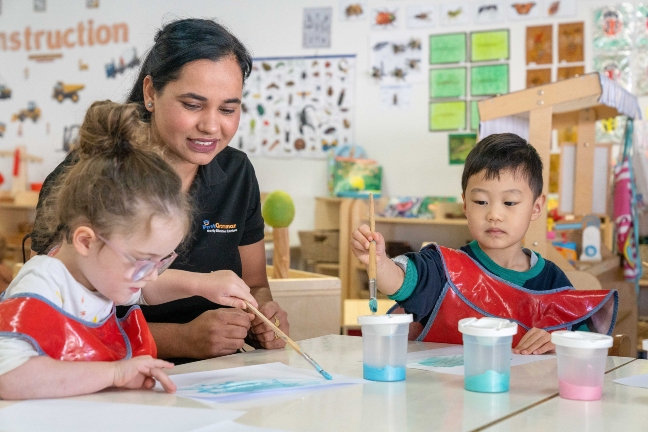
Our learning programs
Underpinned by the principles, practices and outcomes of the Early Years Learning Framework, our inclusive program recognises the unique existing knowledge, experience, abilities, interests and culture each child brings to our child care and early education centres, maximising the learning potential of all children.
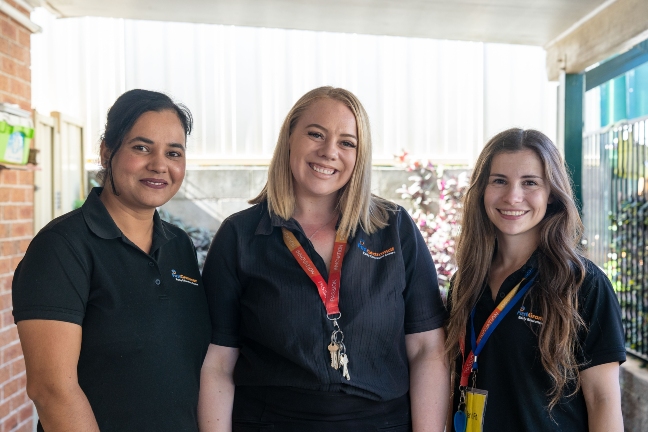
Our team
Our commitment to the highest standards can be seen in the educational programs we offer, the families we look after, and most importantly, the amazing team members we have on hand.

